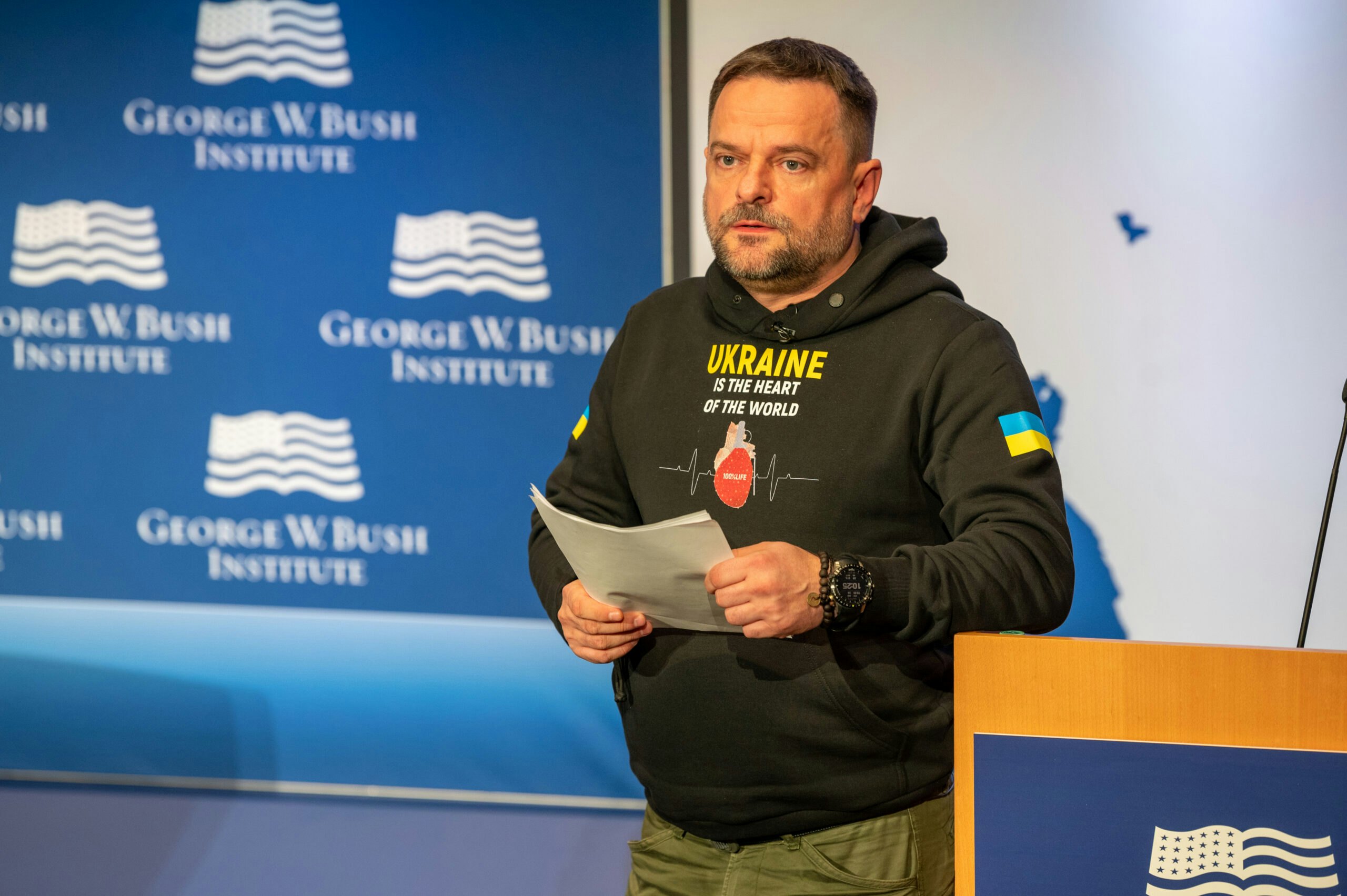Executive Director of the George W. Bush Institute Holly Kuzmich shares how PEPFAR has impacted millions of lives and what the new partnership with UNAIDS means for the program.
Why does PEPFAR matter to Americans?
First, PEPFAR is an investment that the American people have been making that lets others know we care about human life. When it was first put in place, the United States had good access to life-saving drugs at a relatively affordable cost to treat AIDS, and millions on the continent of Africa were dying solely because they didn’t have access to these same drugs. Letting your place of birth determine whether you would live or not is a patently unfair and unjust reality. PEPFAR came at the height of the HIV pandemic – when an entire generation was threatened with extinction – and kept countries from the brink of despair. In fact, because of PEPFAR over 14 million people are now living with HIV who would have otherwise died.
In addition to the moral imperative to help our fellow man, investing in global health is a smart thing to do from an economic, health, and security perspective. AIDS was ravaging countries and entire populations of people, which brings instability. PEPFAR has turned that around. Our investments have also supported the infrastructure of health care systems in Africa, which allows them to better handle other health outbreaks that now quickly reach our shores. For example, the grave losses suffered during the Ebola outbreak in 2014 are predominantly attributed to weak healthcare systems; but countries whose healthcare systems are more robust and responsive, due in large part to PEPFAR investments, were better prepared to quickly control the outbreak. As Ebola rears again in the Democratic Republic of Congo, the country’s healthcare system will be tested.
Tell us about the new partnership with PEPFAR and UNAIDS.
After President Bush left office and continued to travel to Africa, he noted the successes he was seeing on the ground on HIV/AIDS. Yet another challenge was still looming—women were living with HIV but dying from cervical cancer. Women living with HIV are five times more likely to develop cervical cancer, and it is the number one cancer killer of women in sub-Saharan Africa.
Over the past 7 years, the Bush Institute has been working through our Pink Ribbon Red Ribbon program to address cervical cancer on the ground and has achieved some significant results: over half a million women screened and 150,000 girls vaccinated against HPV, which causes most cases of cervical cancer. But we also knew we could do more, so we spent the past year reviewing our strategy in coordination with PEPFAR to determine how we could have even more impact.
That resulted in our new partnership with PEPFAR and UNAIDS, the Partnership to End AIDS and Cervical Cancer, which will focus even more acutely on ending cervical cancer for HIV positive women. We will engage with country governments to ensure that HIV positive women and girls are the priority in national cancer control plans and programs, work to secure increased investments for HPV vaccinations, and convene leaders to assess and improve implementation efforts. PEPFAR is making an initial $30 million investment for cervical cancer in eight countries with high HIV prevalence, a three-fold increase over previous investments. This allows us to reach more women in more countries and build this vaccination, screening, and treatment into the health care systems that are also delivering HIV/AIDS screening and treatment.




























